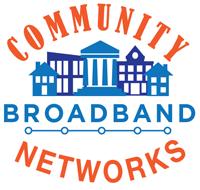“The vast majority of Europeans still only have DSL service available, which we in the United States consider really almost an obsolete technology now.” – Jeffrey Eisenbach, Director of the Center for Internet, Communications, and Technology Policy, American Enterprise Institute.
For the second time this year, one of the major defenders of the cable and telephone companies has admitted that DSL cannot provide the Internet access we need as a nation. This admission validates our research as well as that of Susan Crawford and others that show most Americans are effectively stuck with a cable monopoly.
On April 7, 2014, the Diane Rehm show hosted another discussion on telecommunications policy with guests that included Jeffrey Eisenach.
During that show, Eisenach stated, “The vast majority of Europeans still only have DSL service available, which we in the United States consider really almost an obsolete technology now.”
Interestingly, Eisenach and others have repeatedly claimed that there is no market failure in the US – that we have plenty of choices. But most Americans have to choose between what most now admit is an obsolete DSL product and cable. Eisenach would add 4G LTE as another competitor, but as we have noted many times, the average household would have to pay hundreds of dollars per month to use their LTE connection as a replacement for DSL or cable.
The average household uses something like 40-55 GB of data per month. Given the bandwidth caps from LTE providers, the overage charges quickly result in a bill of approximately $500 or more depending on the plan. This is why the overwhelming majority of the market uses mobile wireless as a complement, not substitute to wired networks.
We are left with one conclusion: there is no meaningful competition or choice for most of us in the residential telecommunications market. And no real prospect of a choice either as the cable companies only grow stronger.
This is not the first time Eisenach admitted that DSL is insufficient for our needs. Back in January, on Diane’s show, he again used Europe’s dependence on DSL as evidence that it was falling behind: “They are reliant on these 20th century copper networks which have real limits on the amount of speed that they can deliver.”
Even those who only want the private sector to deliver services are starting to admit that the existing providers are failing us. What more do communities need to take an active role in ensuring their needs are met?
Stay current on this and other stories by subscribing to our once a week MuniNetworks.org newsletter.





